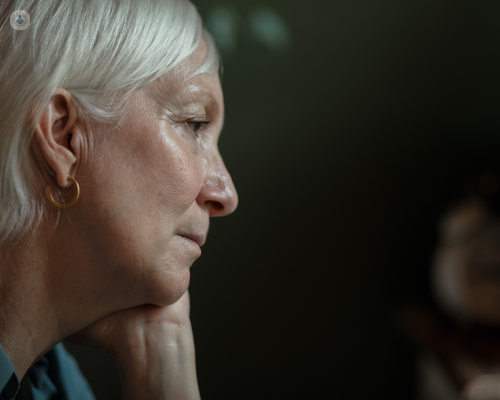Breast augmentation after breast cancer: What to expect
Autore:Breast augmentation following breast cancer surgery is a significant step in the recovery process, aiming to restore the breast's appearance and improve the patient's quality of life. This procedure can help many women regain confidence and a sense of normalcy after their battle with cancer. Here’s a comprehensive guide from leading consultant oncoplastic breast surgeon Mr Ioannis Michalakis on what to expect.

Why consider Breast Augmentation after breast cancer?
After breast cancer surgery, such as a mastectomy or lumpectomy, many women choose breast augmentation for several reasons:
- Reconstruction: To restore the breast to its original shape and size.
- Symmetry: To achieve symmetry between the breasts if only one was affected.
- Confidence: To improve self-esteem and body image.
Types of Breast Augmentation
There are several options available for breast reconstruction, and the choice depends on individual preferences, medical conditions, and the specifics of cancer treatment.
- Implant-based reconstruction
- Silicone implants: Known for their natural feel and appearance.
- Saline implants: Filled with sterile salt water, adjustable after surgery.
- Autologous or flap reconstruction
- DIEP flap: Uses tissue from the abdomen without sacrificing muscle.
- TRAM flap: Similar to DIEP but includes muscle tissue.
- Latissimus Dorsi flap: Utilises muscle, fat, and skin from the back.
The surgical process
- Consultation
- Discuss your medical history, cancer treatment, and aesthetic goals with your surgeon.
- Decide on the type of augmentation best suited for your situation.
- Understand the risks and benefits of each option.
- Preparation
- Stop smoking and avoid certain medications as advised by your surgeon.
- Undergo any necessary preoperative tests.
- Arrange for post-surgery transportation and support at home.
- Surgery
- Performed under general anaesthesia.
- Duration and complexity depend on the type of augmentation chosen.
- Hospital stay might be required, especially for flap procedures.
- Recovery
- Initial recovery period involves rest and limited activity.
- Follow-up visits to monitor healing and implant positioning.
- Pain management with prescribed medications.
What are the potential risks and complications of Breast Augmentation?
Breast augmentation carries certain risks:
- Infection: This can occur at the incision site, or around the implant.
- Bleeding and bruising: Common but usually resolves with time.
- Scarring: Varies based on the surgical technique and individual healing.
- Implant issues: Such as rupture, leakage, or capsular contracture (scar tissue formation around the implant).
Post-surgery care
Proper care is crucial for a successful recovery:
- Follow your surgeon’s instructions: Adhere to guidelines on wound care, activity restrictions, and follow-up appointments.
- Support garments: Wear as recommended to support healing and reduce swelling.
- Healthy lifestyle: Maintain a balanced diet and avoid smoking in order to promote healing.
What psychological and emotional support is available?
Breast cancer and subsequent reconstruction can be emotionally challenging. Consider the following:
- Counselling: Professional support to deal with body image changes and emotional stress.
- Support groups: Connecting with others who have undergone similar experiences can be invaluable.
Questions to ask your surgeon
- What type of Breast augmentation is best for my situation?
- What are the risks and potential complications?
- How long will the recovery process take?
- What results can I realistically expect?
Breast augmentation after breast cancer surgery is a personal and complex decision. It offers many women the chance to regain a sense of normalcy and confidence. By understanding the available options, the surgical process, and the necessary post-surgery care, patients can make informed decisions that best suit their needs and lifestyle. Always consult with a qualified and experienced surgeon to discuss your individual case and achieve the best possible outcomes.
Considering Breast augmentation after breast cancer? Arrange a consultation with Mr Michalakis via his Top Doctors profile.


